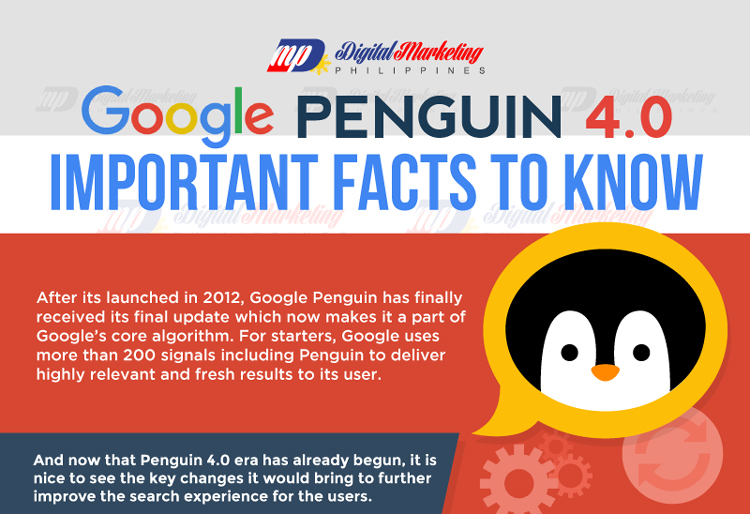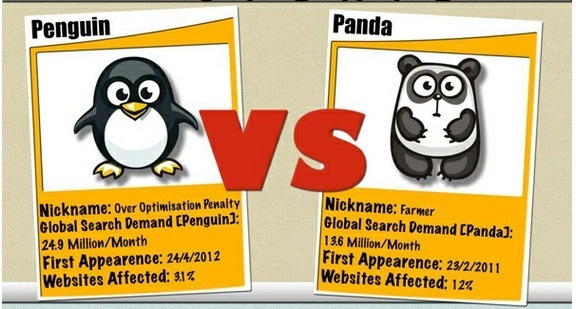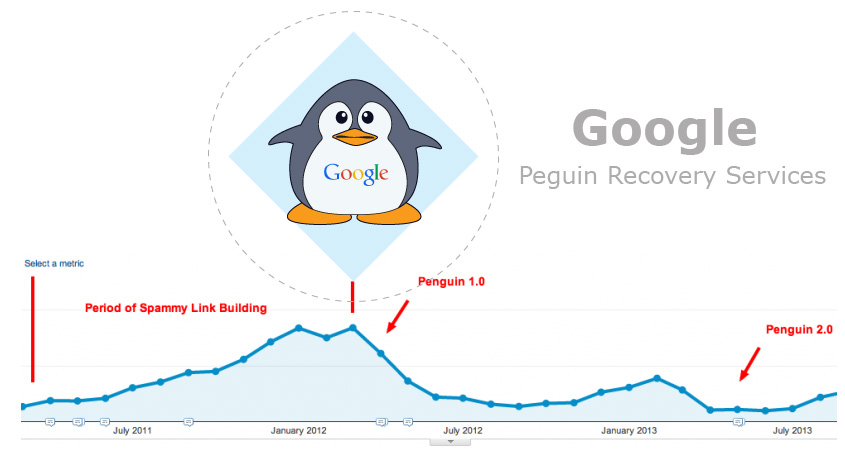Unmasking the mystery behind Google Penguin: How this algorithm update can make or break your website’s search engine ranking.

Image courtesy of via DALL-E 3
Table of Contents
Introduction to Google Penguin
Do you ever wonder how search engines decide which websites to show when you type something into the search bar? Well, one tool that helps keep the internet fair and honest is Google Penguin. Now, don’t let the name fool you – Google Penguin isn’t actually a cute animal but a special program created by Google to make sure websites play by the rules.
What is Google Penguin?
Google Penguin is like a superhero guardian of the internet. Its job is to make sure that websites are being truthful and fair in how they try to show up at the top of search results. You see, some websites try sneaky tricks to cheat and get a higher ranking, but Google Penguin is there to catch them in the act!
Why is it important?
Imagine if the internet was filled with websites that cheated and tricked their way to the top of search results. It wouldn’t be a very trustworthy or helpful place, right? That’s why Google Penguin is so important – it helps keep the internet clean and ensures that websites play by the rules, making your online experience better and more reliable.
How Search Engines Work
A search engine is like a magical tool that helps you find things on the internet. Just like how you ask your parents or teachers for help finding something, you can ask a search engine to show you websites related to what you’re looking for.
How Websites Are Ranked
Search engines, like Google, have a big job of deciding which websites to show you first when you search for something. They look at many things on websites to figure out which ones are the most helpful and trustworthy. Websites with good information and that are easy to use are usually shown first because search engines want to help you find what you need quickly.
The Birth of Google Penguin
Google Penguin, despite its name, is not a cute animal. Instead, it is a tool created by Google to ensure that websites play fair when it comes to showing up in search results. Let’s delve into the story behind the creation of Google Penguin.

Image courtesy of digitalmarketingphilippines.com via Google Images
When Did Google Penguin Start?
In the year 2012, Google launched Penguin as an update to its search algorithm. This update was a response to the growing concern of websites using unethical tactics to manipulate their search engine rankings. Google wanted to level the playing field and give honest websites a fair chance to be seen by users.
Why Was It Created?
Google Penguin was designed to crack down on websites that were engaging in deceptive practices to boost their rankings. Some websites were using tactics like buying fake backlinks or stuffing their content with irrelevant keywords to trick the search engine into ranking them higher. This led to a poor user experience, as users were not getting the most accurate and helpful information.
How Google Penguin Works
Google Penguin works like a superhero for the internet, swooping in to catch the bad guys trying to cheat their way to the top of search results. One of the main things it looks out for is bad links. Imagine if you were in a race and someone tried to give you a fake boost to help you win unfairly. Google Penguin is like the referee that blows the whistle on these fake boosts by spotting websites that use dishonest links.
Stopping Keyword Stuffing
Have you ever played a game where someone kept saying the same word over and over again just to win? Well, some websites try to do the same thing with keywords. Google Penguin is like the fair player who stops this cheating tactic called keyword stuffing. It makes sure websites use keywords naturally and don’t repeat them too many times just to trick the search engine.
Good Practices for Websites
When it comes to improving your website’s ranking on search engines like Google, one of the best practices is to create high-quality content. This means writing articles, blog posts, and other types of content that are helpful, informative, and interesting to your audience. By providing valuable information, you not only attract more visitors to your site but also increase the chances of other websites linking back to your content.

Image courtesy of mgrblog.com via Google Images
Being Honest
Another important aspect of improving your website’s ranking is honesty. In the world of Search Engine Optimization (SEO), it’s crucial to be truthful and ethical in your practices. Trying to cheat the system by using black hat techniques like keyword stuffing or buying links may provide short-term gains, but it can lead to penalties from search engines like Google in the long run. By being honest and following best SEO practices, you can build a strong foundation for your website’s success and earn the trust of both users and search engines.
Impact of Google Penguin on the Internet
After Google Penguin was introduced, the internet saw a significant decrease in spammy websites. These are websites that try to trick search engines into giving them a higher ranking by using dishonest tactics. With Google Penguin in place, these websites are now caught and pushed down in search results, making it harder for them to reach users.
Better Search Results
One of the positive impacts of Google Penguin is that it has led to better search results for users. When spammy websites are pushed down in rankings, it allows more honest and high-quality websites to appear at the top of search results. This means users are more likely to find useful and relevant information when they search for something online.
In conclusion, Google Penguin has played a crucial role in cleaning up the internet and promoting fair competition among websites. By penalizing unethical practices and rewarding quality content, Google Penguin has made the online space a better and more reliable source of information for users.
How to Recover from a Google Penguin Penalty
So, your website has been hit with a Google Penguin penalty, but don’t panic! The first step in recovering from this setback is to figure out why your site was penalized in the first place. One common reason is having low-quality or spammy backlinks pointing to your site. These are links that come from unreliable sources or are not relevant to your content. To identify these bad links, you can use Google Search Console or other tools to conduct a backlink audit. Once you’ve identified the problematic links, you can start taking action to remove or disavow them.

Image courtesy of googlepanda.masternewmedia.org via Google Images
Fixing the Issues
After identifying the root cause of the penalty, it’s time to make the necessary changes to get your website back on track. If your site was penalized for low-quality backlinks, reach out to the website owners linking to you and request for the removal of these links. If that doesn’t work, you can use Google’s Disavow Tool to tell Google to ignore these spammy links. Additionally, focus on improving the overall quality of your website by creating valuable and relevant content. Make sure your website is user-friendly and optimized for search engines. By demonstrating to Google that you are committed to providing a positive user experience with high-quality content, you can start the journey towards penalty recovery.
The Future of Google Penguin
Google Penguin has come a long way in ensuring fair and ethical practices on the internet. But what does the future hold for this digital watchdog?
Continuous Updates
Google is always working on improving its algorithms, including Penguin, to stay one step ahead of websites trying to cheat the system. As people come up with new tricks to boost their rankings unfairly, Google will evolve Penguin to catch them.
Staying Ahead
For websites looking to maintain a good standing with Google, it is crucial to stay informed about the latest SEO best practices. By keeping abreast of the changes in algorithms and guidelines, website owners can ensure that they are always on the right side of Google Penguin.
Summary
In this blog post, we learned about Google Penguin, a tool used by Google to ensure fairness and honesty in website rankings. Google Penguin helps catch websites that try to cheat their way to the top of search results by using unethical tactics.

Image courtesy of www.idslogic.com via Google Images
Key Takeaways
We discussed how search engines like Google work to find and rank websites based on various factors. Google Penguin was launched in 2012 to crack down on websites that engaged in deceptive practices to manipulate search rankings.
Google Penguin works by detecting bad links and penalizing websites that engage in keyword stuffing. It encourages websites to focus on creating quality content and provide a positive user experience.
As a result of Google Penguin, there are fewer spammy websites on the internet, leading to better search results for users. Websites can recover from Google Penguin penalties by identifying and fixing the issues that caused the penalty in the first place.
Looking to the future, Google Penguin will continue to evolve with new updates to keep up with changing SEO practices. It’s essential for website owners to stay informed and adhere to ethical SEO strategies to stay ahead in the game.
Want to turn these SEO insights into real results? Seorocket is an all-in-one AI SEO solution that uses the power of AI to analyze your competition and craft high-ranking content.
Seorocket offers a suite of powerful tools, including a Keyword Researcher to find the most profitable keywords, an AI Writer to generate unique and Google-friendly content, and an Automatic Publisher to schedule and publish your content directly to your website. Plus, you’ll get real-time performance tracking so you can see exactly what’s working and make adjustments as needed.
Stop just reading about SEO – take action with Seorocket and skyrocket your search rankings today. Sign up for a free trial and see the difference Seorocket can make for your website!
Frequently Asked Questions (FAQs)
What is Google Penguin?
Google Penguin is not an actual animal, but a tool created by Google to ensure fairness and honesty in website rankings. It helps search engines like Google catch websites that use unethical tactics to boost their rankings.
How can I avoid Google Penguin penalties?
To steer clear of Google Penguin penalties, follow good SEO practices. Make sure your website focuses on quality content, user experience, and ethical SEO techniques. Avoid using fake links or overusing keywords, as Google Penguin penalizes websites that engage in these practices.
Can I recover from a Google Penguin penalty?
Yes, if your website has been penalized by Google Penguin, there is hope for recovery. By identifying the issues that caused the penalty, fixing those problems such as removing bad links and improving content, and following ethical SEO strategies moving forward, you can take steps towards recovering your website’s ranking.







